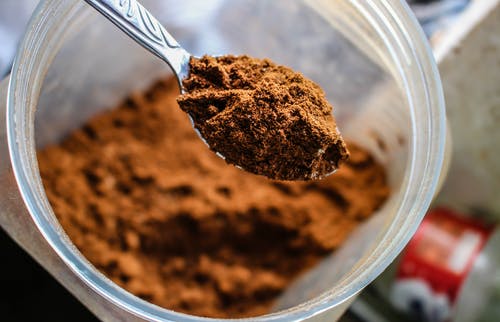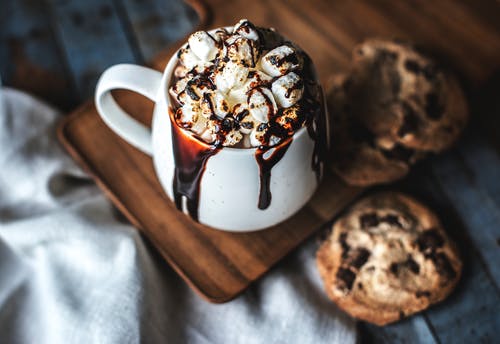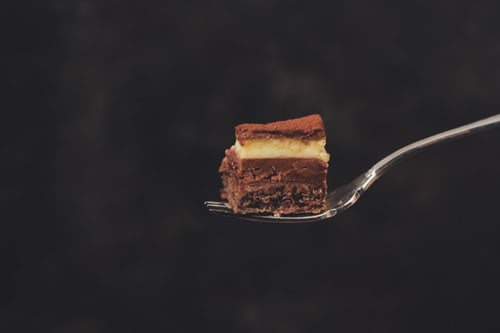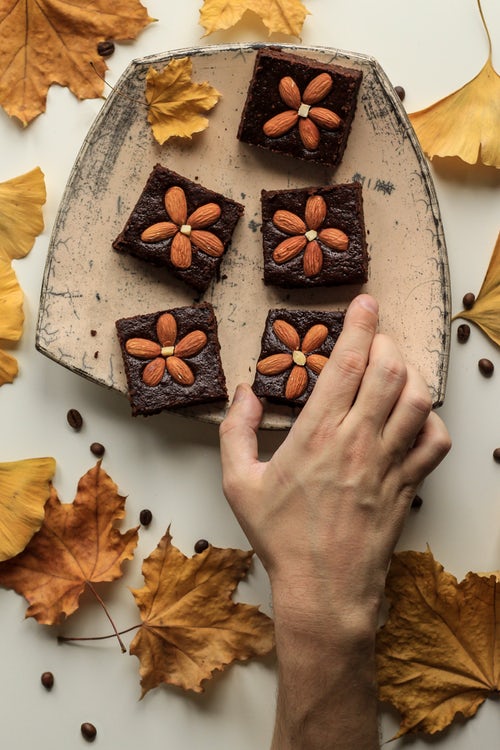The idea that eating chocolate is beneficial to our health is by no means a new one but do you know how or why? Do you want to know? With Easter just gone (and the potential for cheap chocolate rising by the day…) now is the perfect time to find out all the nice things eating chocolate can do for you.
Let’s start with sample of some of the many potential beneficial health effects that have been linked to eating (or drinking) chocolate including decreasing your risk of metabolic syndrome, hypertension, coronary heart disease, high blood lipids, stroke, cancer, cognitive function and dementia1-23. As you can see this is quite the selection so in today’s post, we’re going to get clear on just one of these and that is how chocolate contributions to keeping your heart healthy. A very worthy area of attention given that cardiovascular disease (CVD) is the leading cause of death globally24.
Why is Chocolate Good for Your Heart?
There’s are a few reasons chocolate is considered healthful when it comes to your heart and today we’re going to focus on just two of these, firstly its superb antioxidant capacity and secondly its high mineral content.
- Antioxidants, Chocolate & Your Heart

There are numerous different kinds of antioxidants found in all sorts of foods from nuts, fruits and vegetables to fish and egg yolks. When it comes to chocolate it is the cacao bean found within the beautifully coloured cacao pods grown on the cacao tree (scientific name Theobroma cacao which means ‘food of the gods’) which contain the antioxidants. (If you’re interested in the process of chocolate making from bean to bar this website has a simple description https://cocoarunners.com/explore/bean-to-bar/ fyi I have no affiliation with this company).
Antioxidants have the ability to help your body repair and protect itself more readily and easily from any form of damage that may come about as part of living an everyday life. The antioxidants found within chocolate play important roles including in maintaining the vascular tone and suppleness of your veins, arteries and capillaries which is important for smooth blood flow and good circulation. When compared to other foods you’ve likely heard are high in antioxidants including garlic and berries25-28 chocolate comes out on top in the oxygen radical absorbance capacity (ORAC). The ORAC value is a reflection of a foods ability to protect against oxidative stress.
For anyone who wants to off some real post Easter chocolate facts the main antioxidants found in cacao are the flavan-3-ols of which there are many compounds under this name25, 29, 30.
2. Minerals, Chocolate & Your Heart
Chocolate provides a source of four main minerals that each have important roles in heart health including preventing high blood pressure (BP). These minerals are potassium, copper, magnesium and calcium31-36. Dark chocolate is higher in these minerals (except calcium) for the simple reason that a higher amount of the cacao bean is being eaten per gram of dark chocolate than milk chocolate (but hey, you can always just eat more milk chocolate…)
Potassium
There is a well-recognised inverse relationship between potassium intake and BP and stroke related deaths37-39. That is the more potassium you eat the lower your risk of dying from stroke and the content of potassium is similar in milk and dark chocolate.


Calcium
Calcium also shows a BP lowering effect although to a lesser degree than potassium40-42. The calcium content of milk chocolate is much higher than dark chocolate. In general when compared to other foods we consider good sources of calcium (such as dairy products or tahini) the calcium you get from eating chocolate is not significant however it all counts and consuming foods in which minerals are present in combination rather than solo (as in a calcium supplement) has greater beneficial health effects.
Copper
Copper receives far less attention than calcium or potassium, yet it is needed to allow for the smooth running of numerous reactions within your body including collagen synthesis which keeps your skin healthy and supple43. Copper also plays a vital role in heart health especially in the early developmental years and copper deficiencies during early development can lead to heart abnormalities and contribute to CVD later in life44. Who says kids shouldn’t eat chocolate again?… And pregnant women if you’re craving it, get into it!


Magnesium
Another lesser known mineral with numerous important roles in your body including nerve function, protein building, muscle relaxation, energy production all of which are important to heart health as well as being one of the minerals responsible for maintaining the structure and strength of your teeth and bones44.
Chocolate also provides a good source of numerous additional trace minerals all of which are necessary to allow for your body to function optimally.
Isn’t Chocolate High in Fat?

Yep, chocolate is a relatively high fat food and a third of this fat content is saturated fat and as tempting as it is for me to say so what and leave it at that I am going to quickly address this high fat fear you may have.
For those who’ve been living under a rock or way out of touch with the health and nutrition world (you’re a dying breed and I salute you) saturated fats are those we associate with raising blood cholesterol levels and elevated blood cholesterol levels can increase your chance of developing cardiovascular disease45. However, the good news is the predominant type of saturated fatty acid in chocolate is stearic acid and stearic acid has been shown to have a neutral effect on blood cholesterol levels46-48 (that is it neither increases nor decreases your cholesterol).
To highlight this a study in which subjects consumed 280g of milk chocolate per day as part of an assortment of foods showed no adverse effects on cholesterol levels when compared to their regular diet despite a high proportion of dietary calories coming from saturated fat (20%)49. Believe it or not there is not anything inherently bad about eating fat and the research linking high fat diets to negative health consequences is mixed.
Chocolate Helps Your Brain Tap into Happiness

On top of being good for your physical health chocolate is also a source of the chemical tryptophan which when eaten is thought to increase serotonin levels in your brain50. Why is this a wonderful reason in and of itself to eat chocolate? Because serotonin is one of the ‘feel good hormones’51-53 and there’s not too many things better (anything) than feeling good. As well as this chocolate contains precursors to neurotransmitters the little substances that get around in the synapses of your brain cells and essentially help you think fast and well and therefore may due to this fact have a further positive effect on increasing your alertness and brain function45.
What Type of Chocolate Is Best?

It depends (a dietitian’s favourite answer). Are you eating chocolate for the maximal, concentrated hit of health benefits? Then have a cup of super bitter pure cacao. Or are you eating cholate as part of a delicious and varied diet? In which case enjoy whatever chocolate choice you like best in the moment because you don’t have to just eat cacao nibs, raw cacao powder or cacao beans for the health benefits. You really can have the chocolate with sugar, and you can have the chocolate with milk (nuts, marshmallows, coconut, caramel, orange, peppermint or any other combination that exists including for those in Australia the very viable option of vegemite).
How Much Chocolate Should I Eat?

All sorts of numbers and measurements are given for how much chocolate you need to eat in order to experience health benefits ranging from more than five cups of cacao a day as is reported to be the intake of the Kuna Indians54, 55 (the native people of Panama and Colombia who are have incredibly low rates of heart attack, stroke, diabetes and cancer thought to be thanks to their high cacao intake) down to a 45g milk chocolate bar per day56 and everything in between…
In the context of a plentiful and variety filled diet there doesn’t appear to be a chocolate limit per se. However, because there is a substantial amount of evidence in support of diets in which a wide variety of foods contribute to meeting daily energy needs as the most health promoting chocolate can be a great addition but by no means the make or break of a healthful diet (nor is kale of kombucha).
Take Home Messages

While it’s unlikely that chocolate will fix all your life problems there is substantial evidence that chocolate can contribute to health. In this post we looked at how eating chocolate can help to decrease your risk of CVD due to its high concentration of antioxidants and minerals important to heart health.
At the end of the day what does this all mean? It means enjoy your chocolate this Easter (and forever after) and rest assured that the current scientific consensus is very much in favour of eating a diet plentiful in antioxidant rich foods (and in case you forgot this includes chocolate).
If you struggle enjoying chocolate (or any other foods) please get in contact with me because we can change this and believe me there are far more enjoyable ways to live the rest of your life than being at war with yourself.
With my whole heart I trust you found this information useful and inspiring

Become Great. Live Great.
Bonnie.
Reference
- Dillinger TL, Barriga P, Escarcega S, Jimenez M, Salazar Lowe D, Grivetti LE. Food of the gods: cure for Association of Cocoa Consumption and Risk of Cardiovascular Diseases and Other Chronic Diseases 65 humanity? A cultural history of the medicinal and ritual use of chocolate. J Nutr. 2000; 130: 2057S–2072S.
- Grivetti, Louis E.; Howard-Yana Shapiro (2009). Chocolate: history, culture, and heritage. John Wiley and Sons. ISBN 9780470121658.2009.
- Henderson JS, Joyce RA, Hall GR, Hurst WJ, McGovern PE. Chemical and archaeological evidence for the earliest cacao beverages. Proc Natl Acad Sci USA. 2007; 104: 18937–18940.
- Fedacko J, Vargova V, Singh RB, Anjum B, Takahashi T, Tongnuka M, Dharwadkar S, Singh S, Singh V, Kulshresth SK, De Meester F, Wilson DW. Association of high w-6/w-3 fatty acid ratio diet with causes of death due to noncommunicable diseases among urban decedents in North India. The Open Nutra Jour. 2012;5:113-123.
- Tokede OA, Gaziano JM, Djoussé L. Effects of cocoa products/dark chocolate on serum lipids: a metaanalysis. Eur J Clin Nutr. 2011. 65(8):879-86.
- Hooper L, Kay C, Abdelhamid A, Kroon PA, Cohn JS, Rimm EB, Cassidy A. Effects of chocolate, cocoa, and flavan-3-ols on cardiovascular health: a systematic review and meta-analysis of randomized trials. Am J Clin Nutr. 2012 Mar;95(3):740-51.
- Larsson SC, Virtamo J and Wolk A. Chocolate consumption and risk of stroke A prospective cohort of men and meta-analysis. Neurology 2012;79:1223-29.
- Skelhon T, Grossiord N, Morgan A, Bon S. Quiescent water-in-oil Pickering emulsions as a route toward healthier fruit juice infused chocolate confectionary. J Mater Chem 2012; 22:19289-95.
- Armitage ME, Wingler K, Schmidt HH, La M. Translating the oxidative stress hypothesis into the clinic: NOX versus NOS. J Mol Med (Berl) 2009 Nov; 87(11):1071-6.
- Webb AJ, Patel N, Loukogeorgakis S, Okorie M, Benjamin N, MacAllister R, Hobbs AJ, Ahluwalia A. Acute blood pressure lowering, vasoprotective, and antiplatelet properties of dietary nitrate via bioconversion to nitrite. Hypertension 2008 Mar; 51(3):784-90.
- Buitrago-Lopez A, Sanderson J, Johnson L, Warnakula S, Wood A, Di Angelantonio E, Franco OH. Chocolate consumption and cardiometabolic disorders: systematic review and meta-analysis. BMJ. 2011;343:d4488.
- Grassi D, Desideri G, Necozione S, Ruggieri F, Blumberg JB, Stornello M, Ferri C. Protective Effects of Flavanol-Rich Dark chocolate on endothelial function and wave reflection during acute hyperglycemia. Hypertension. 2012;60:827-832.
- Desideri G, Kwik-Uribe C, Grassi D, et al. Benefits in cognitive function, blood pressure, and insulin resistance through cocoa flavanol consumption in elderly subjects with mild cognitive impairment: the Cocoa, Cognition, and Aging (CoCoA) Study. Hypertension 2012;60:794-801.
- Buijsse B, Feskens EJ, Kok FJ, Kromhout D. Cocoa intake, blood pressure, and cardiovascular mortality: the Zutphen Elderly Study. Arch Intern Med. 2006;166:411– 417.
- Taubert D, Roesen R, Schömig E. Effect of cocoa and tea intake on blood pressure: a meta-analysis. Arch Intern Med. 2007 Apr 9;167(7):626-34.
- Ried K, Sullivan T, Fakler P, Frank OR, Stocks NP. Does chocolate reduce blood pressure? A meta-analysis. BMC Med 2010; 8:39.
- Desch S, Schmidt J, Kobler D, Sonnabend M, Sareban M, Rahimi K, Schuler G, Thiele H. Effect of cocoa products on blood pressure: systematic review and meta-analysis. Am J Hypertens 2010 Jan; 23(1):97-103.
- Mursu J, Voutilainen S, Nurmi T, Rissanen TH, Virtanen JK, Kaikkonen J, Nyyssonen K, Salonen JT. Dark chocolate consumption increases HDL cholesterol concentration and chocolate fatty acids may inhibit lipid peroxidation in healthy humans. Free Radic Biol Med. 2004;37: 1351–1359.
- Sorond FA, Lipsitz LA, Hollenberg NK, Fisher ND. Cerebral blood flow response to flavanol-rich cocoa in healthy elderly humans. Neuropsychiatric Disease and Treatment 2008:4(2) 433–440.
- Kurlandsky SB, Stote KS. Cardioprotective effects of chocolate and almond consumption in healthy women. Nutr Res. 2006;26:509–516. [22] Baba S, Osakabe N, Kato Y, Natsume M, Yasuda A, Kido T, Fukuda K, Muto Y, Kondo K. Continuous intake of polyphenolic compounds containing cocoa powder reduces LDL oxidative susceptibility and has beneficial effects on plasma HDL-cholesterol concentrations in humans. Am J Clin Nutr. 2007;85:709 –717.
- Panneerselvam M, Tsutsumi YM, Bonds JA, Horikawa YT, Saldana M, Dalton ND, Head BP, Patel PM, David M. Roth DM, and Hemal H. Patel HM. Dark chocolate receptors: epicatechin-induced cardiac protection is dependent on δ-opioid receptor stimulation Am J Physiol Heart Circ Physiol. 2010;299(5):H1604– H1609.
- Bisson JF, Nejdi A, Rozan P, Hidalgo S, Lalonde R, Messaoudi M. Effects of long-term administration of a cocoa polyphenolic extract (Acticoa powder) on cognitive performances in aged rats. Br J Nutr 2008;100:94-101.
- Corti R, Flammer AJ, Hollenberg NK, Luscher TF. Cocoa and cardiovascular health. Circulation 2009;119:1433-1441.
- World Health Organisation. Cardiovascular Disease (CVDs). 2019. WHO. Available online: https://www.who.int/news-room/fact-sheets/detail/cardiovascular-diseases-(cvds).
- Adamson GE, Lazarus SA, Mitchell AE, Prior RL, Cao G, Jacobs PH, Kremers BG, Hammersone JF, Rucker RB, Ritter KA, Schmitz HH. HPLC method for the quantification of procyanidins in cocoa and chocolate samples and correlation to total antioxidant capacity. J Agric Food Chem. 1999;47:4184-4188.
- Wang H, Cao G, Prior RL. Total Antioxidant capacity of fruits. J Agric Food Chem. 1996;44:701-705.
- Cao G, Sofic E, Prior RL. Antioxidant capacity of tea and common vegetables. J Agric Food Chem. 1996;44:3426-3431.
- Kalt W, Ryan DAJ, Duy JC, Prior RL, Ehlenfeidt MK, Kloet SPV. Interspecific variation in anthocyanins, phenolics and antioxidant capacity among genotypes of highbush and lowbush blueberries (vaccinium section cyanocaccus spp.). J Afric Food Chem. 2001;49:4761-4767.
- Baba S, Osakabe N, Yasuda A, Natsume M, Takizawa T, Nakamura T, Terao J. Bioavailability of (-) epicatechin upon intake of chocolate and cocoa in human volunteers. Free Radic Res. 2000;33:635-641.
- Osakabe N, Yamagishi M, Sanbongi C, Natsume M, Takizawa T, Osawa T. The antioxidative substances in cacoa liquor. J Nutr Sci Vitaminol. 1998;44:313-321.
- Klevay L. Copper in nuts may lower heart disease. Arch Intern Med, 1993;153:401-402.
- Elin RJ, Hosseini JM. Is the magnesium content of nuts a factor for coronary heart disease? Arch Intern Med. 1993;153:779-780.
- The Sith Report of the Joint National Committee on Prevention, Detection, Evaluation and Treatment of High Blood Pressure. Arch Int Med. 1997;157:2413-2446
- Appel L, Moore F, Obarzanek E, Vollmer WN, Svetkey LP, Sacks FM, Bray GA, Vogt TM, Cutler JA, Windhauser MM, Lin PH, Karanja N. A clinical trial of the effects of dietary patterns on blood pressure. N Engl J Med. 1997;1117-1124.
- Chobanian AV, Hill M. National Heart, Lung and Blood Institute Workshop on Sodium and Blood Pressure: a critical review of current scientific evidence. Hypertension. 2000;35:858-863.
- Executive Summary of the Third Report of the National Cholesterol Education Program (NCEP) Expert Panel on Detection, Evaluation and Treatment of Hihg Blood Cholesterol in Adults (Adult Treatment Panel III). JAMA. 2001;285:2486-2498.
- Khaw KT, Barrett-Connor E. Dietary potassium and stroke-associated mortality. N Engl J Med. 1987;316:235-240.
- Ascherio A, Hennekens C, Willett WC, Sacks M, Rosner B, Manson J, Witterman J, Stampfer MJ. Prospective study of nutritional factors, blood pressure and hypertension among US women. Hypertension. 1996;27:1065-1072.
- Whelton PK, He J, Cutler JA, Bancati FL, Appel LJ, Follman D, Klag MJ. Effects of oral potassium on blood pressure: meta-analysis of randomized controlled clinical trials. JAMA. 1997;277:1624-1632.
- McCarron DA, Morris CD, Henry HJ, Stanton J. Blood pressure and nutrient intake in the United Stares. Science. 1984;224:1392-1398.
- Birkett NJ. Comments on a meta-analysis of the relation between dietary calcium intake and blood pressure. AM J Epidemiol. 1998;148:223-228.
- Griffith L, Guyatt GH, Cook RJ, Bucher HC, Cook DJ. The influence of dietary and nondietary calcium supplementation on blood pressure: an updated meta-analysis of randomized clinical trials. Am J Hypertens. 1999;12:84-92.
- Stipanuk MH. Biochemical and physiological aspects of human nutrition. Philadelphia: W.B. Saunders Company. 2000.
- Food and Nutrition Board, Institute of Medicine. Dietary Reference Intakes for Vitamin A, Vitamin K, Arsenic, Boron, Chromium, Copper, Iodine, Iron, Manganese, Molybdenum, Nickel, Silicon, Vanadium and Zinc. Washington, DC: National Academy Press. 2001.
- Fan AZ, Strine TW, Muppidi SR, Greenlund KJ, Croft JB, Berry JT, Jiles R, Mokdad AH. Psychological distress associated with self-reported high blood pressure and high blood cholesterol in U.S. adults, Int J Public Health. 2009;54:S94–S99.
- Thoistrup T, Marckmann P, Jespersen J, Sandstrom B. Fat high in stearic acid favourably affects bloodlipids and factor VII coagulant activity in comparison with fats high in palmitic acid or high in myristic and lauric acids. Am J Clin Nutr. 1994;59:371-377.
- Bonanome A, Grundy SM. Effect of dietary stearic acid on plasma cholesterol and lipoprotein levels. N Engl J Med. 1988;318:1244-1248.
- Kris-Etherton PM, Derr JA, Mitchell DC. The role of fatty acid saturation on plasma lipids, lipoproteins and apolipoproteins. Effects of whole food diets high in cocoa butter, olive oil, soybean oil, dairy butter and milk chocolate on the plasma lipids of young men. Metabolism. 1993;42:130-134.
- Weingarten HP, Elston D. The phenomenology of food cravings. Appetite. 1990;15:231-46.
- Sandyk R. L-Tryptophan in neuropsychiatric disorders: a review. Int J Neurosci. 1992;67:127-44.
- Wurtman JJ, Brzezinski A, Wurtman RJ, Laferrere B. Effect of nutritent intake on premenstrual depression. Am J Obstet Gynecol. 1989;161:1228-34.
- Wurtman RJ, Wurtman JJ. Carbohydrate craving, obesity and brain serotonin. Appetite. 1986;7:99-103.
- Schifano F, Magni G. MDMA (“Ecstasy”) abuse: psychopathological features and cravings for chocolate: a case series. Biol Psychol. 1994;36:763-7.
- Chevaux KA, Jackson L, Villar ME, Mundt JA, Commisso JF, Adamson GE, McCullough ML, Schmitz HH, Hollenberg NK. Proximate, mineral, and procyanidin content of certain foods and beverages consumed by the Kuna Amerinds of Panama. J Food Comp Anal. 2001;14:553–63.
- McCullough ML, Chevaux K, Jackson L, Preston M, Martinez G, Schmitz HH, Coletti C, Campos H, Hollenberg NK. Hypertension, the Kuna, and the epidemiology of flavanols. J Cardiovasc Pharmacol Suppl. 2006;47:103–39
- Kris-Etherton PM, Der JA, Mustad VA, Seligson FH, Pearson TA. A milk chocolate bar/day substituted for a high carbohydrate snack increases high-density lipoprotin cholesterol in young men on a NCEP/AHA Step One diet. Am J Clin Nutr. 1994;60:1037S-1042S.



2 thoughts on “23+ Reasons to Eat Chocolate”
One of my favorite effects of chocolate consumption is a reduction in appetite. One study quantified this by giving participants a 100 g serving of either milk or dark chocolate two hours before being served an all-you-can-eat lunch.
That’s interesting, thanks for sharing.